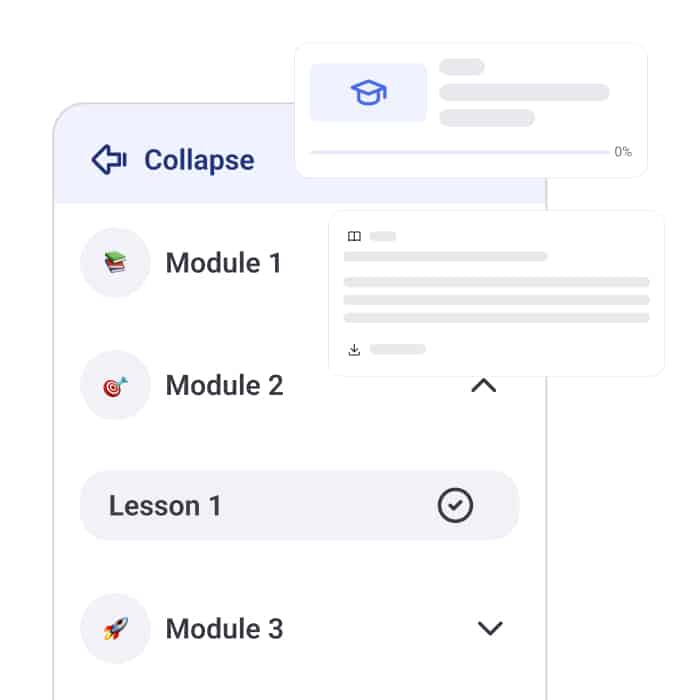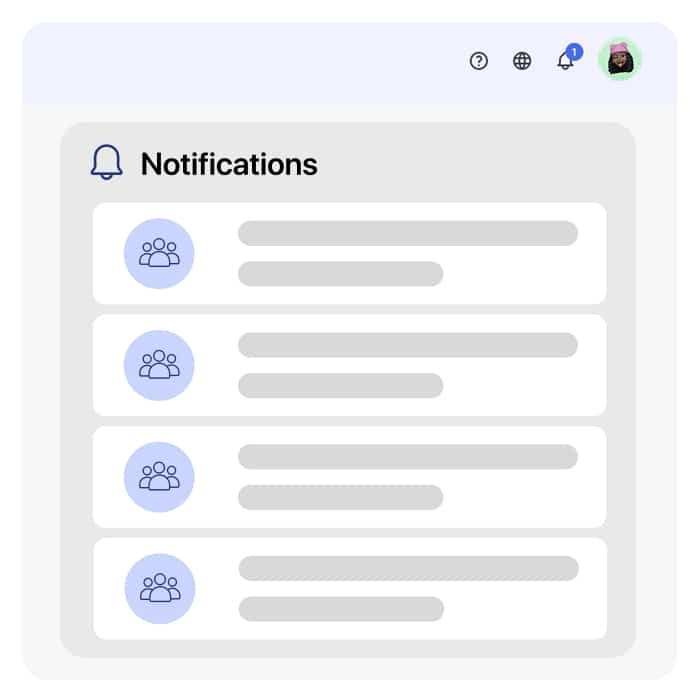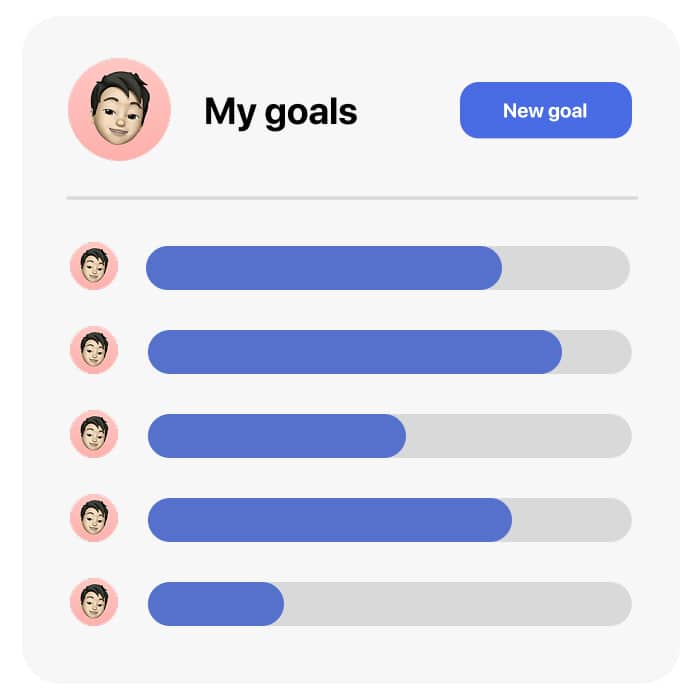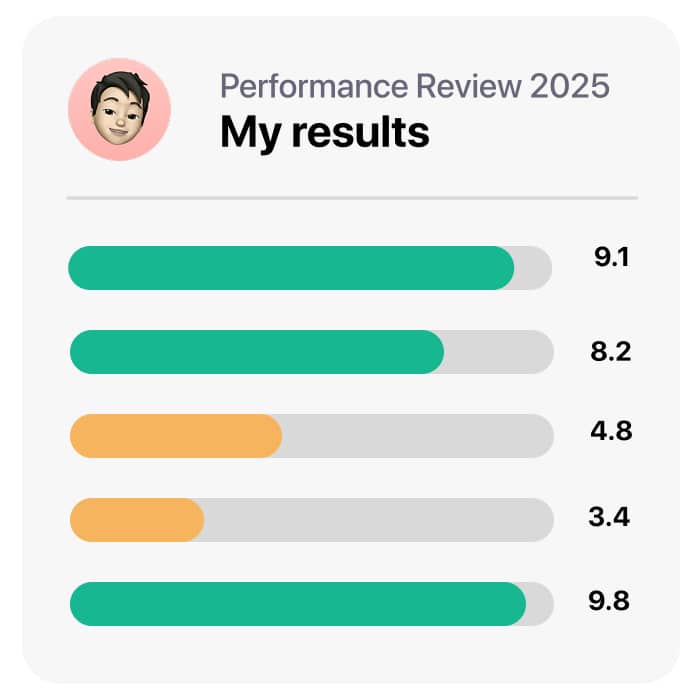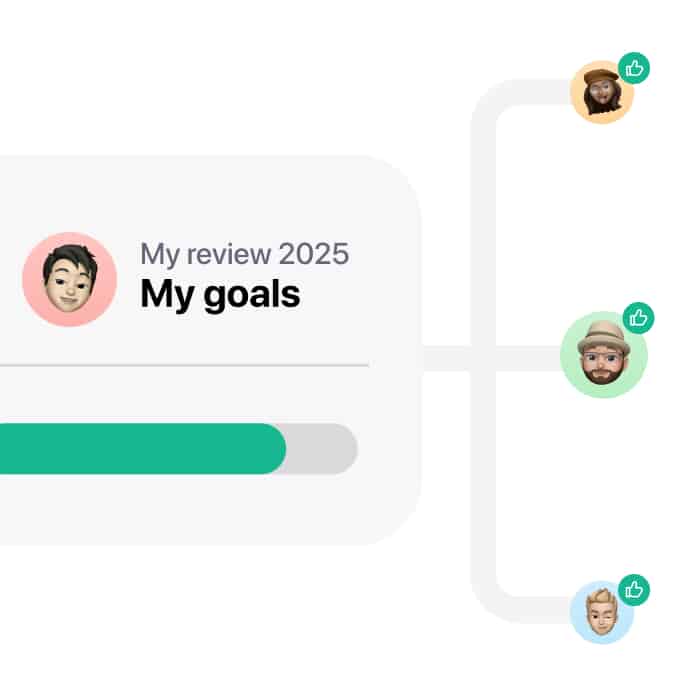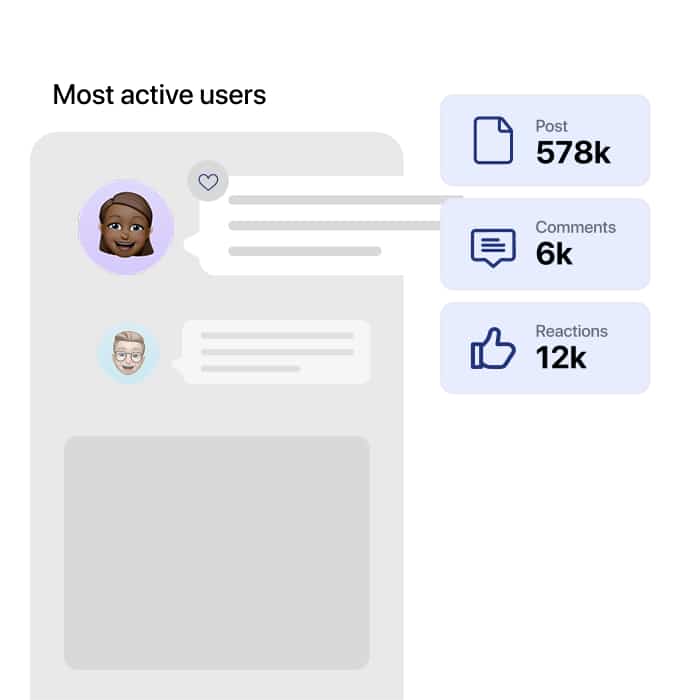Digital transformation has revolutionized the way we work, and the field of Human Resources is no exception. Nowadays, artificial intelligence (AI) technologies play an increasingly important role in optimizing processes and improving efficiency in the Human Resources area. In this article, we will explore how AI can enhance HR functions and provide significant value to professionals in this field.
Automation and Optimization of HR Tasks
One of the most prominent advantages of AI in Human Resources is the automation and optimization of tasks. HR teams face a large number of administrative and repetitive tasks that consume time and resources.
By using artificial intelligence, these tasks can be automated, freeing up valuable time for HR professionals to focus on strategic and higher-value activities.
Practical Example: AI can be used to automate the recruitment and selection process, analyzing resumes, filtering candidates, and scheduling interviews, allowing HR professionals to spend more time on evaluating and selecting the most qualified candidates.
¿How?
Artificial intelligence automates resume analysis in the recruitment and selection process. By being fed with a database of previously classified resumes, the model learns to recognize desired selection criteria.
Once trained, AI can process new resumes and assess if they meet the established requirements. The model analyzes information, identifies keywords, evaluates work and educational experience, and generates a list of candidates that meet the initial requirements.
By automating the initial resume filtering, AI saves time for HR professionals. This allows them to focus on evaluating and selecting the final candidates.
In summary, artificial intelligence simplifies and streamlines the recruitment and selection process by analyzing resumes, filtering candidates, and allowing professionals to focus on the final evaluation.
Report Generation and Data Analysis
Artificial intelligence is also useful in report generation and data analysis in Human Resources. Its ability to analyze large datasets and extract relevant information quickly and accurately speeds up the process of report generation and summaries. Additionally, it can help HR professionals understand and effectively communicate analysis results through useful summaries and visualizations.
Practical Example: AI can generate performance metrics reports for employees, analyzing data such as attendance, performance, and job satisfaction. These reports facilitate decision-making and the design of talent development and retention strategies
How?
Artificial intelligence has the ability to analyze large datasets related to employee performance, such as attendance, performance, and job satisfaction. This data can come from human resource management systems, satisfaction surveys, or performance evaluations.
Once artificial intelligence has access to this data, it can process it and extract relevant information to generate performance metrics reports. Using data analysis techniques, the model identifies patterns, trends, and correlations among the evaluated variables.
The reports generated by AI provide a detailed view of employee performance, allowing HR professionals to objectively evaluate their performance and level of job satisfaction. These reports may include metrics such as average attendance, performance in specific goals, satisfaction in different aspects of work, among others.
These reports are valuable for decision-making in HR. Based on the results obtained, professionals can identify areas for improvement, design talent development and retention strategies, and make informed decisions about promotions, bonuses, or training programs.
In summary, artificial intelligence uses data on attendance, performance, and job satisfaction to generate employee performance metrics reports. These reports provide HR professionals with an objective and detailed view of employee performance, facilitating decision-making and the design of talent development and retention strategies.
Support in HR decision-making
Informed decision-making is essential in Human Resources, and artificial intelligence can be a valuable ally in this process. Thanks to its ability to generate hypotheses and test different data modeling approaches, AI can help HR professionals make decisions based on accurate information and detailed analysis. Additionally, its ability to understand and respond to specific questions provides additional insights that support strategic decision-making.
Practical Example: Artificial intelligence can offer personalized recommendations on training and development programs for employees by analyzing data on their current skills and areas for improvement identified in performance evaluations. This helps HR professionals design effective development plans and align staff growth with organizational goals.
How?
AI has the ability to analyze data on employees’ current skills and areas for improvement identified in performance evaluations. This data can come from formal evaluations, supervisor feedback, or even self-assessments.
Using this data, artificial intelligence can identify skill gaps for each employee and generate personalized recommendations on training and development programs that fit their individual needs.
The model analyzes employees’ current skills and compares that information with the competencies required for their current role or for future roles within the organization. Based on these comparisons, AI suggests specific training programs that can help employees develop the skills needed to close the identified gaps.
These personalized recommendations allow HR professionals to design effective development plans and align staff growth with organizational goals. Employees receive clear guidance on available training opportunities and how they can improve their skills in specific areas.
Additionally, AI can provide additional information on the duration, resources required, and expected benefits of each recommended training program. This helps HR professionals make informed decisions about investments in staff development.
In summary, artificial intelligence analyzes data on employees’ skills and areas for improvement to offer personalized recommendations on training and development programs. This helps HR professionals design effective development plans, align staff growth with organizational goals, and provide employees with clear guidance on improvement and development opportunities available.
Ethical Considerations and Challenges for Human Resources
In addition to the advantages, it is important to address potential challenges and ethical considerations associated with the use of AI in Human Resources. Data privacy is a critical aspect to consider, ensuring that appropriate measures are implemented to protect the confidentiality of employees’ sensitive information. Additionally, while AI is capable of providing accurate answers, human supervision is essential to ensure the accuracy and ethics of responses, avoiding possible biases or incorrect interpretations.
The Strategic Role of Human Resources in the Era of Artificial Intelligence
The incorporation of technologies such as artificial intelligence in Human Resources is redefining the role of professionals in this area. Automating routine tasks allows HR teams to focus on higher-value strategic analysis and risk anticipation. HR professionals have the opportunity to become drivers of company performance by using advanced technological tools to manage expenses, resources, and improve overall efficiency.
Conclusion
In summary, the integration of artificial intelligence in the field of Human Resources offers numerous advantages for professionals in this area. From automating administrative tasks to generating reports and data analysis, this artificial intelligence tool drives efficiency and allows HR teams to focus on strategic higher-value tasks. Additionally, AI provides valuable support in informed decision-making and can help professionals understand and effectively communicate data.

